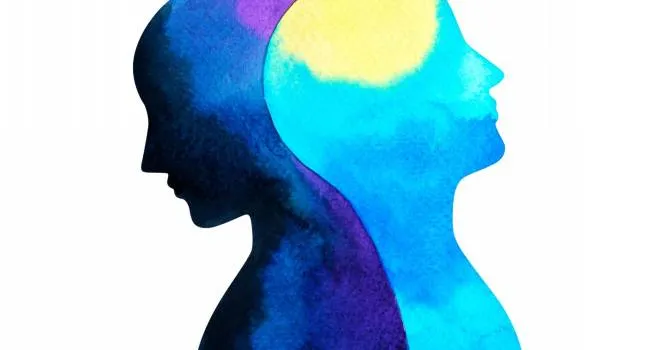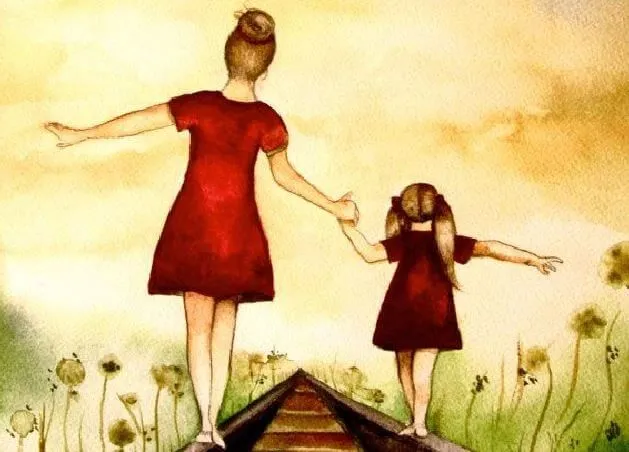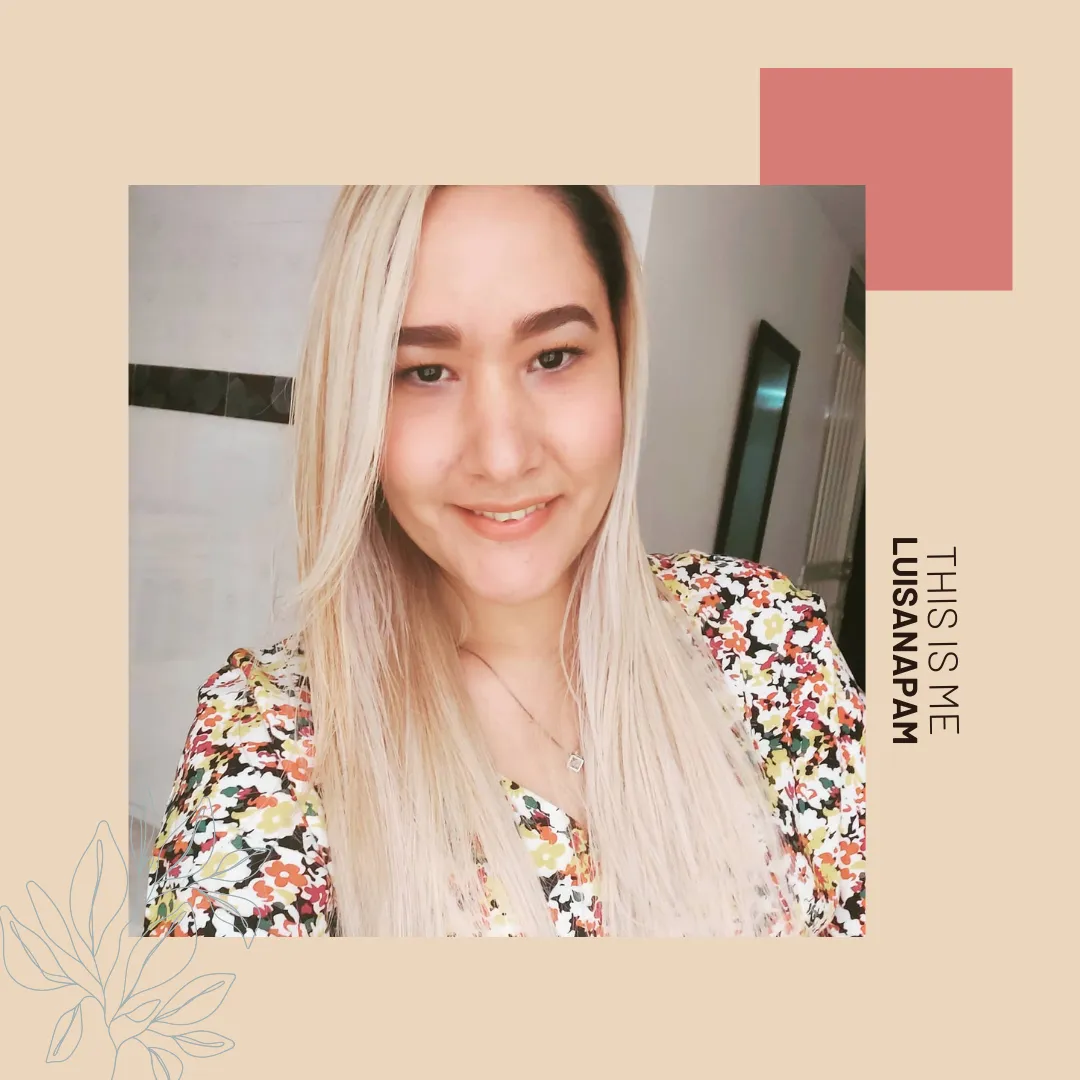Tenía varios temas de los cuales hablarles para este siguiente post, algunos viajes que quiero compartir más adelante, o recetas de cocina que he venido haciendo, pero siempre me ha gustado mostrarme como soy, con mis altos y bajos, y como no todo en mi vida es perfecto, que es lo que quieren mostrar mayormente las redes sociales, quiero tomar este post como una manera de drenar lo que siento, y hoy siento la necesidad de compartir con ustedes mi perspectiva y mi experiencia de vivir con una madre con trastorno bipolar, que ha sido malinterpretado por mucho tiempo como cambios de humor repentinos, pero que va mucho más allá de eso, que involucra mayormente episodios de agresividad, ideas paranoicas, yoismo, e incluso, hasta síntomas de esquizofrenia.
I had several topics to talk to you about for this next post, some trips that I want to share later, or cooking recipes that I have been doing, but I’ve always liked to show myself as I am, with my ups and downs, and since not everything in my life is perfect, which is what social networks mostly want to show, I want to take this post as a way to drain what I feel, and today I feel the need to share with you my perspective and my experience of living with a mother with bipolar disorder, which has long been misinterpreted as sudden mood swings, but goes far beyond that, involving mostly episodes of aggression, paranoid ideas, self centeredness, and even symptoms of schizophrenia.

Mental illnesses have been stigmatized, mostly due to the lack of knowledge about them, but in the age of information through the Internet and social networks, they have opened the door to go deeper, to see, not only from the medical perspective, but also from the patient or family members, what it is like to live with a mental illness.
Hay una frase que se ha vuelto común actualmente que dice que la salud mental es el motor para el cuerpo y la salud física, y no hay nada más cierto que eso. Hay muchos tratamientos efectivos para el dolor, para una fiebre, para lesiones físicas, para las células cancerígenas, y si bien es cierto que hay otras enfermedades que ocasionan mucho daño y pérdidas, estas pueden ser más controlables, más tratables; ahora bien, ¿cómo controlas tu mente? Sé que muchos dirán “pero también hay tratamientos para las enfermedades mentales!”, es cierto, pero la enfermedad está allí, sigue allí latente, lista para, en un descuido, salir a la luz nuevamente, y causar estragos, no solo en el que la vive, porque para este esa es su verdad absoluta, es su mundo, sino mayormente en el sano de al lado, el que ha sido marcado intrínsecamente por la enfermedad del otro, física, emocional, mental y socialmente; y esta es mi versión de la historia.
There is a phrase that has become common today that says that mental health is the engine for the body and physical health, and there is nothing truer than that. There are many effective treatments for pain, for a fever, for physical injuries, for cancer cells, and while it is true that there are other illnesses that cause a lot of damage and loss, these can be more controllable, more treatable; but now, how do you control your mind? I know that many will say "but there are also treatments for mental illnesses!", it is true, but the disease is there, it is is and will always be there, ready to, in an oversight, come to light again, and cause damage, not only in the one who lives it, since for them, that is their absolute truth, it is their world, but mostly in the healthy one on the side, the one who has been intrinsically marked by the disease of the other, physically, emotionally, mentally and socially; and this is my side of the story.
Recuerdo una mañana, yo llegaba a casa después de la escuela, tenía alrededor de 7 u 8 años, estaba muy emocionada por llegar a casa y abrazar a mi madre, la veo de espaldas, está lavando la ropa, y corro a sorprenderla con un abrazo, y al sentirme, al darse cuenta de que había llegado, me aparta a un lado y rechaza mi abrazo. Estaba de mal humor, tal vez estaba cansada o se había alterado por algo, pero como yo ya tenía consciencia para entender su enfermedad, solo me fui a mi cuarto a cambiarme y dejar mis cosas.
I remember one morning, I was coming home after school, I was about 7 or 8 years old, I was very excited to get home and hug my mother, I see her with her back turned, she is doing the laundry, and I run to surprise her with a hug, and after realizing that I had arrived, she pulls me aside and rejects my hug. She was in a bad mood, maybe she was tired or had been upset about something, but since I was already conscious enough to understand her illness, I just went to my room to change and put my things away.
Muchos padres intentan proteger la ilusión de un niño, de creer en San Nicolás, o Niño Jesús, pero no mi madre; aproximadamente para la misma edad, voy corriendo a contarle lo que quiero pedir para navidad, lo que mis primos también desean, y sin ningún preámbulo, exalta “el niño Jesús no existe, solo son los padres quienes dan los regalos”. No dije nada en ese momento, hasta hoy, solo mantuve el secreto para conservar la ilusión de mis primos.
Many parents try to protect the illusion of a child, to believe in Santa, or Baby Jesus, but not my mother; around the same age, I go running to tell her what I want for Christmas, what my cousins also want, and without any preamble, she claims "baby Jesus does not exist, it is only the parents who give the gifts". I did not say anything at that time, until today, I just kept the secret to keep the illusion of my cousins.
Uno de esos días de recaídas, una niña de mi colegio me invitó a su fiesta de cumpleaños. Sabía que había recaído, y que estaba alterada, no sabía cómo preguntarle. Le comento a la niña que no se si podré asistir, porque no sé si me darían permiso, sin dar más detalles; ella insiste en ir a mi casa conmigo y pedirle a mi madre que me deje ir, mi madre acepta. La pasé muy bien, bailé, jugamos, estuve con mis amigos, hasta que veo a mi hermana mayor llegar a la fiesta un poco asustada y me dice que debemos irnos rápido, porque mi mamá está molesta y me está esperando para pegarme. Durante el viaje en bicicleta, estaba asustada, confundida, no sabía que había hecho mal; llego a casa y allí estaba, con un cinturón lista para pegarme, y de verdad no recuerdo su regaño, o si me golpeó, solo recuerdo lo confundida y asustada que estaba al entrar a casa.
One of those relapse days, a girl from my school invited me to her birthday party. I knew she had relapsed, and that she was upset, I didn't know how to ask her. I tell the girl that I didn't know if I would be able to attend, because I didn't know if my mother would let me, without giving more details; she insists on going to my house with me and asking my mother to let me go, my mother accepts. I had a great time, I danced, we played, I was with my friends, until I saw my older sister arrive at the party a little scared and she tells me that we must leave quickly, because my mom is upset and is waiting for me to hit me. During the bike ride, I was scared, confused, I didn't know what I had done wrong; I get home and there she was, with a belt ready to hit me, and I really don't remember what she said, or if she hit me, I just remember how confused and scared I was when I got home.
Cuando eres un niño y tu mamá tiene ideas paranoicas, no entiendes que es real y que no. Ella, desde niña, ha pasado por situaciones económicas precarias, y una de sus ideas recurrentes es que encuentra un tesoro bajo su casa. Tengo un vago recuerdo de ir a la ciudad, porque vivíamos en un pueblito a unos 45 min, pensaba que iríamos a hacer las diligencias de costumbre, ir al banco, hacer unas compras, las cosas de adultos, pero vamos a un lugar que no conocía, donde nunca habíamos ido antes, y ella pide hablar con alguien. Estamos en una oficina, yo solo escucho, y ella le comenta a este hombre enfrente, que tiene un tesoro enterrado en su casa, y necesita la ayuda de este instituto para sacarlo. Recuerdo la cara de confusión de esta persona, no sabia que decir, pero logró convencerla y hacerle saber que no podían ayudarla. Nos vamos a casa, ella decepcionada y yo confundida de lo que había pasado.
When you are a child and your mother has paranoid ideas, you don't understand what is real and what is not. She, since she was a child, has gone through precarious economic situations, and one of her recurring ideas is that she finds a treasure under her house. I have a vague memory of going to the city, because we lived in a small town about 45 min away, I thought we would go to do the usual errands, go to the bank, do some shopping, adult things, but we go to a place I didn't know, where we had never been before, and she asks to talk to someone. We're in an office, I'm just listening, and she tells this in front of us that she has a treasure buried in her house, and she needs the help of this institute to get it out. I remember the look of confusion on this person's face, he didn't know what to say, but he managed to convince her and let her know that they couldn't help her. We went home, she was disappointed and I was confused about what had happened.
Mis padres son divorciados, por lo que, desde muy chiquita, me quedé sola con mi madre porque mis hermanas se habían ido a la universidad, y esto me llevó al apego. Era la primera vez de mis hermanas viviendo solas en la ciudad y mi madre decidió que debíamos mudarnos con ellas. Esto le ocasionó un desbalance emocional, y por último, una recaída muy fuerte. Mis tías decidieron que era mejor alejarme, llevarme a otro lugar, mientras ella se recuperaba. Durante el día, jugaba con mis primos y me divertía, pero llegaba la noche y la extrañaba, lloraba por ella, porque cuando eres niño, no te importa si la paternidad ha sido buena o mala, si es lo mejor o no para ti, solo quieres estar con tu madre o padre, y la amas.
My parents are divorced, so, from a very young age, I was left alone with my mother because my sisters had left for college, and this led to emotional attachment. It was my sisters' first time living alone in the city and my mother decided that we should move in with them. This caused her to become emotionally unbalanced, and ultimately, a very strong relapse. My aunts decided it was better to take me away, to take me somewhere else, while she recovered. During the day, I played with my cousins and had fun, but the night came and I missed her, I cried for her, because when you are a child, you don't care if parenthood has been good or bad, if it is the best or not for you, you just want to be with your mother or father, and that you love them.

A veces también tienes que asumir responsabilidades de adulto que no deberían corresponderte. Una de las características principales de estos pacientes es la negación, es creer que ese mundo en sus mentes es la realidad, la verdad absoluta, y que no necesitan tratamiento. Muchas veces, de niña, mientras estaba sola con ella, y mis hermanas estaban en la ciudad, tenía que buscar la manera de darle el tratamiento a escondidas. Durante el día planificaba la misión, tomaba lo que necesitaba de la cocina para triturar las pastillas, las guardaba en un papel, y ofrecía hacer la cena. Ella se iba a su cuarto, y yo me quedaba preparando algo en la cocina para mezclarlo con la pastilla. Nos sentamos a la mesa, y rogaba que no tenga un sabor extraño o no haya hecho bien el trabajo.
Sometimes you also have to assume adult responsibilities that should not correspond to you. One of the main characteristics of these patients is denial, believing that this world in their minds is real, the absolute truth, and that they don't need treatment. Many times, as a child, while I was alone with her, and my sisters weren’t in town, I had to find a way to give her treatment on the sly. During the day I would plan the mission, take what I needed from the kitchen to crush the pills, put them in a piece of paper, and offer to make dinner. She would go to her room, and I would stay and prepare something in the kitchen to mix with the pill. We sat at the table, and I prayed that it didn't taste funny or didn't do the job right.
La gente dice que tu versión del presente es resultado de tus decisiones pasadas, o lo que haces con lo que te pasa, y sí, es cierto, pero también es cierto, que eso que te afecta y te lleva a ser como eres es lo único que sabes, que siempre has sabido, con lo que siempre has vivido, con lo que de niño no se te ayudó a canalizar, y cuando llegas a la edad adulta, los patrones, son más difíciles de erradicarlos. No canalizar mis sentimientos a tiempo me ha llevado a rasgos psicológicos y emocionales que me han costado amistades y relaciones sociales, a apegarme de ese lugarcito feliz donde se me brinda amor, de no saber cómo lidiar con el rechazo y la frustración, de desistir de las cosas cuando se ponen difíciles o fracaso, a ser muy introvertida y no tener la inteligencia emocional bien desarrollada para relacionarme, de no dejar a nadie entrar a mi vida por miedo al rechazo, y así, muchas otras cosas que por mucho tiempo he venido descubriendo y trabajando en terapia.
People say that your version of the present is the result of your past decisions, or what you do with what happens to you, and yes, it is true, but it is also true that what affects you and leads you to be the way you are is the only thing you know, what you have always known, what you have always lived with, what you were not helped to channel as a child, and when you reach adulthood, the patterns are more difficult to eradicate. Not channeling my feelings in time has led me to psychological and emotional traits that have cost me friendships and social relationships, to become attached to that happy place where love is given to me, to not know how to deal with rejection and frustration, to give up on things when they become difficult or I fail, to be very introverted and not have well developed emotional intelligence to relate, to not let anyone into my life for fear of rejection, and so, many other things that for a long time I have been discovering and working on in therapy.
Pero como todo en la vida, hay altos y bajos, momentos malos y momentos buenos. Mi madre, a pesar de no ser una persona amorosa, o al menos en gestos y palabras, siempre ha sido muy servicial, presta a ayudar al otro, puede incluso dejar de comer la comida de su plato para alimentar a otro más necesitado. Disfruto, ahora de adulta, sentarme a la mesa con ella y contar historias, escucharla hablar, que me cuente de cuando era niña o joven. Disfruto verla disfrutar de una dulce, de sus ocurrencias a veces. Verla hablarle a los animales para que tengan paciencia mientras puede ir a darles de comer. Disfruto que me muestre una canción que cree que me va a gustar. Disfruto verla por el retrovisor de mi carro cuando me voy, esperando a perderme de vista. Disfruto ser la hija de la versión sana de mi madre.
But like everything in life, there are ups and downs, bad moments and good moments. My mother, despite not being a loving person, or at least in gestures and words, has always been very helpful, ready to help others, she can even stop eating the food on her plate to feed someone else in need. I enjoy, now as an adult, sitting at the table with her and telling stories, listening to her talk, having her tell me about when she was a child or a young woman. I enjoy watching her enjoy a sweet treat, her trying to be funny at times. Watching her talk to the animals to be patient while she can go feed them. I enjoy her showing me a song she thinks I will like. I enjoy seeing her in the rear view mirror of my car as I drive off, waiting for me to get out of sight. I enjoy being the daughter of the healthy version of my mother.

Por más años que pasen, por más contacto tengas con la enfermedad, por más repetitivos que sean los episodios, nunca llegas totalmente a adaptarte a las circunstancias de vida que tienes de frente, nunca llegas a aprender en su totalidad como actuar o cómo tratar a los pacientes en su momento, nunca deja de afectarte que tu propia madre o padre, llegue a desconocerte como hijo y pensar que lo que haces, es por hacerle daño; que cuando llegues a casa de visita no sepas con qué estado de ánimo o ideas paranoicas te vas a encontrar, tal vez, en contra de tí mismo como hijo; que tu propia madre, en su delirio, llegue a odiarte.
No matter how many years go by, no matter how much contact you have with the disease, no matter how repetitive the episodes are, you never fully adapt to the life circumstances you have in front of you; you never fully learn how to act or how to treat the patients at the time, it never ceases to emotionally affect you that your own mother or father, doesn’t know who you truly are anymore and think that, what you do, is to hurt him or her; that when you get home to visit, you do not know what mood or paranoid ideas you are going to find, perhaps, against yourself as a son; that your own mother, in her delirium, may come to hate you.
A veces en mi frustración de no poder sacarla de su mundo, de traerla a la realidad, discutimos, porque lamentablemente, por mas años que pasen, no se como manejarlo, no se como tratar con la enfermedad, a veces solo quisiera alejarme, pero luego recuerdo a la Niria que me ama, la que está pendiente de mí, la que dió todo por sacarnos adelante, y una sensación de perdón viene a mi pecho y suelto. Hace días vi por alli que si quieres sanar la relación con tu madre, y con la relación me refiero al perdón, a aceptación por tu parte hacia tu madre, es necesario primero, respetarla como es, como tu madre, respetar su vida, su historia, sus heridas, su niña interna; también liberarte de las expectativas que tienes en tu mente del rol de una madre; y por último, agradecer, por haberte dado la vida, por las enseñanzas, por haber hecho lo mejor que pudo.
Sometimes in my frustration of not being able to get her out of her world, to bring her back to reality, we argue, because unfortunately, no matter how many years go by, I don't know how to handle it, I don't know how to deal with the disease, sometimes I just want to walk away, but then I remember the Niria who loves me, who is looking out for me, who gave everything to bring us forward, and a feeling of forgiveness comes to my chest and I let go. A few days ago, I saw something that got me thinking, and it it that if you want to heal the relationship with your mother, and by relationship I mean forgiveness, acceptance on your part towards your mother, it is necessary first, to respect her as she is, as your mother, to respect her life, her story, her wounds, her inner child; also to free yourself from the expectations you have in your mind of the role of a mother; and finally, to thank her for having given you life, for the teachings, for having done the best she could.
Y con todo esto, no quiero pasar por un papel de víctima, o que me tengan lástima, ni mucho menos. Esto fue, honestamente, un modo terapéutico de contar un secreto que callé por mucho tiempo, que indudablemente marcó mi vida y la manera cómo me relaciono. Es mí versión de la historia, es ver y entender que esta enfermedad no solo la viven y sufren los pacientes, sino el familiar o amigo involucrado. Es tener empatía con aquel que lo ha vivido, porque la sociedad está presta a juzgar, mas no en respetar y entender lo que ha vivido el niño interno de cada uno.
And with all this, I do not want to play the role of a victim, or to be pitied. Far from it, this was, honestly, a therapeutic way of telling a secret that I kept quiet for a long time, which undoubtedly marked my life and the way I relate to others. It is my version of the story, it is a way to see and understand that this disease is not only experienced and suffered by the patients, but also by the family member or friend involved. It is a way to have empathy with those who have lived it, because society is ready to judge, but not to respect and understand what the inner child of each one has lived.
Remember to be kind, be strong, be you.
A warm hug
